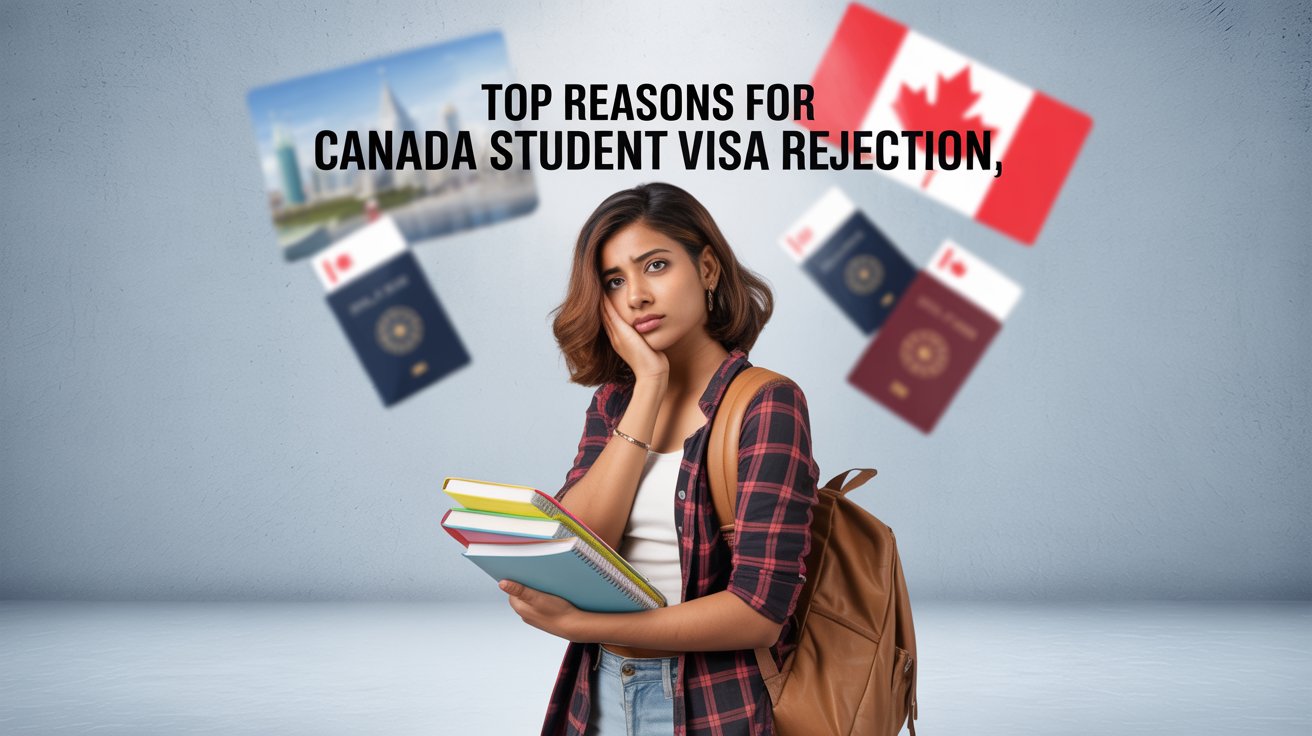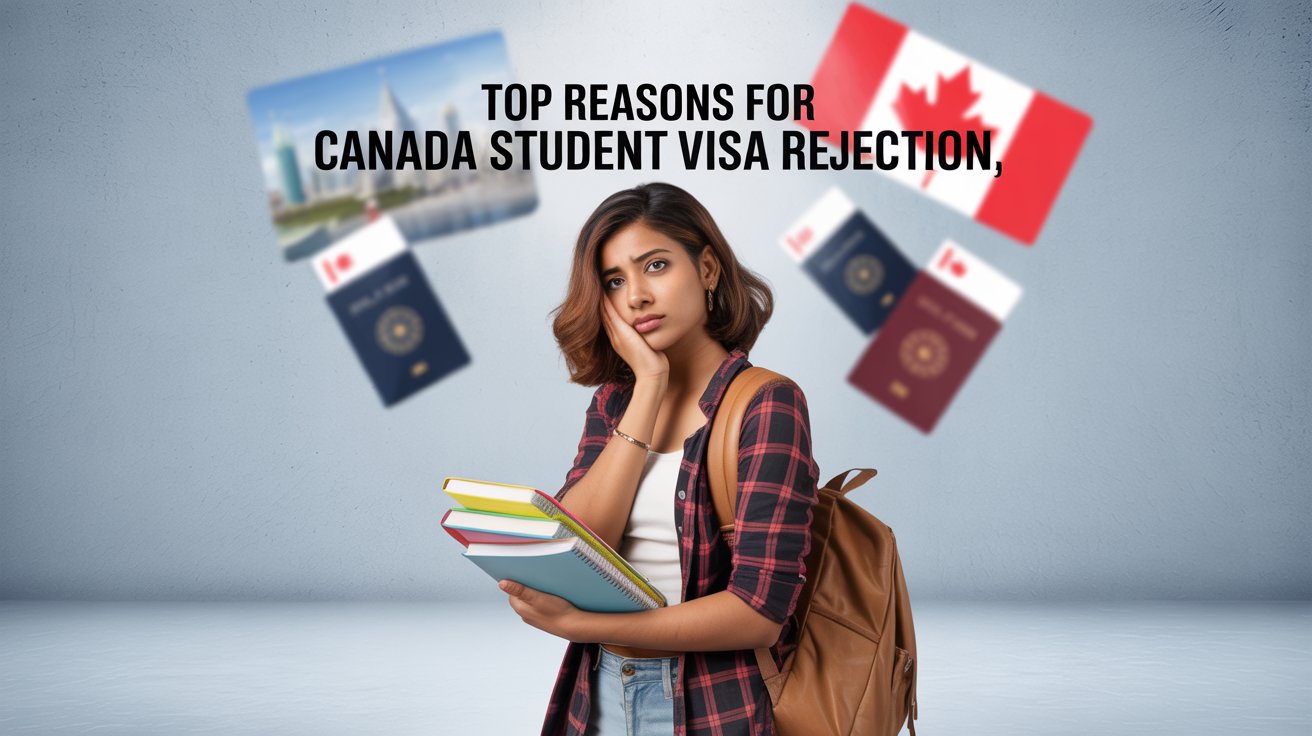


Canada is still where a lot of students want to go for higher studies. That hasn’t changed. What has changed in 2025 is how closely the visa officers are looking at each file. One small mistake, a wrong date, a weak SOP, or missing proof of funds, and the application can be pushed aside.
It’s not just about handing in the checklist anymore. They’re looking to see if your plans make sense, if your money is in order, and if the whole story feels genuine. The rules might be the same on paper, but they’re being enforced much tighter now.
We’ve seen students with great academic scores and strong acceptance letters still get a refusal. The difference often lies in the small details and how the story is put together. Here’s a closer look at the main reasons for Canada student visa rejection in 2025 so applicants can avoid those traps before they apply.
Visa officers don’t chase missing papers. If something’s not there, the file usually stops right there. In 2025, they are looking harder at the small stuff. Even translations have to be full and certified, not just “close enough.” Before sending anything, it helps to go through the file slowly, line by line, imagining you are the officer trying to piece the story together.
A last-minute lump sum doesn’t help. Officers want to see money that’s genuinely yours, kept in the account for some time, and enough to cover your tuition, living costs, and emergencies in Canada. To show this, you can use:
Your Statement of Purpose is where officers judge whether your plans make sense. They’re checking why you picked that course, why you’re going to Canada for it, and what you plan to do after. If those answers don’t connect, it sets off alarms. A copied or generic SOP is easy for them to spot, and it won’t help you. In 2025, they want to see a clear link between your past studies, the program you’ve chosen, and the job or career you’re aiming for next. If that link is missing, they’ll question your intent.
Bad grades don’t sink every application, but they do make the officer stop and think. If marks have dipped, if you’ve failed a few times, or if there’s a year missing with no reason, it sticks out. They’re reading your record for signs you can handle Canada’s workload. A recent run of good scores helps. So does extra training or a job that proves you’ve got the skills. If there’s nothing to show you’ve bounced back, it’s easy for them to doubt you’ll last the course.
When the course is taught in English or French, the officer needs proof that you can actually keep up. That’s usually your IELTS, TOEFL, or TEF score. In 2025, they’re looking closer at whether it meets the college requirement, whether it’s still valid, and where it was taken. If the score is low, expired, or from a test center they don’t trust, the application can slow down or stop. Even if the number looks fine, a big gap between what you say and what the test shows will get noticed.
Gaps aren’t always a problem, but silence about them is. If you stopped studying or working for a while, the officer will want to know why. Maybe you were preparing for an entrance test, helping at home, or taking a short course, fine, but say it. They expect proof, not just a line in your application. That could be a letter, a certificate, or even medical papers. Leave it unexplained, and they might think you were just sitting idle, and that hurts your chances.
The officer has to believe you’ll go back home when your studies are done. If they don’t, the visa’s at risk. In 2025, weak ties stand out: no steady job to return to, no family relying on you, and no property or business in your name. That makes them think you might stay in Canada. Show them proof you’ve got reasons to come back. A job offer, business documents, or family commitments all help. If they can’t see that pull towards home, it’s an easy refusal.
Choosing the wrong course can make an officer doubt your intentions. If your program has nothing to do with your previous studies or work, it looks like you’re using it just to get into Canada. In 2025, they’re also looking for a level match, applying for a diploma when you already have a master’s, or going for a highly advanced program without the right background; both raise questions. The course should make sense in your career path. If it doesn’t, explain clearly why you chose it and how it fits your plans.
A past refusal doesn’t automatically mean a new one, but it will be checked. In 2025, officers want to see what’s changed since your last application. If the issues that caused the refusal are still there, the result will likely be the same. Not explaining a past refusal is a mistake. Immigration violations, like overstaying a visa in any country, are taken seriously and can damage credibility. Be honest about it, and give them something real that shows the problem’s sorted, so they’re not left guessing.
Most refusals happen because something was missed or left unclear. Go through the file like you’re the visa officer. If anything makes you pause, fix it. Keep funds steady, choose a course that fits your background, and explain any gaps before they ask. If you’ve had trouble before, show what’s changed. Covering these points cuts down the chances of falling into the common reasons for Canada student visa rejection in 2025.
ImmiLaw Global works with students to build a case that feels complete from the start. They check every detail, flag weak spots, and help fill the gaps before the file goes in. That might mean reworking an SOP, finding better proof of funds, or adding documents you didn’t think mattered. They’ve handled enough tricky applications to know what makes an officer stop and question things and how to prevent it.
Feel free to contact us for your queries.
Read to Know: Top In-Demand Jobs for Canada Permanent Residency in 2025